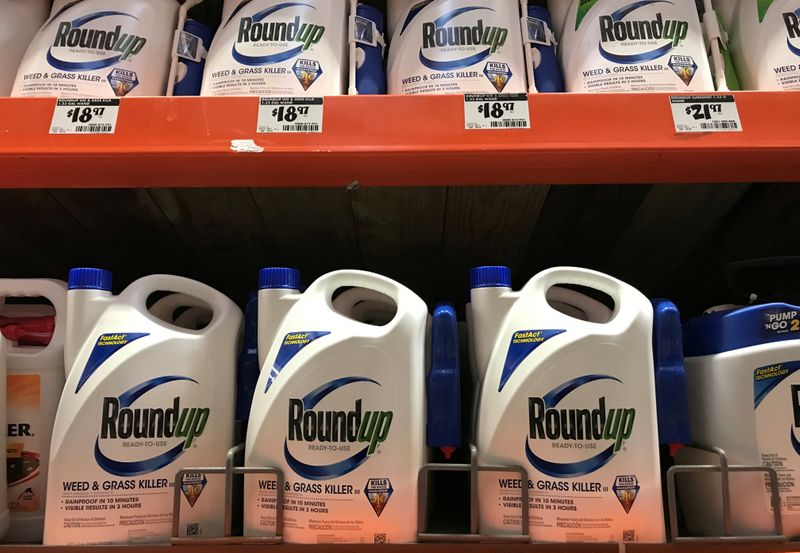PARIS (Reuters) – France’s health and environment agency announced restrictions on weedkiller glyphosate in farming, but stopped short of a full ban in the European Union’s top agricultural producer due to a lack of non-chemical alternatives in some areas.
The new rules set out by ANSES on Friday are part of a push by the French government to phase out glyphosate by 2021 and reflect a global debate about the safety of the weedkiller, first developed by Bayer’s Monsanto unit under the brand Roundup.
President Emmanuel Macron in 2017 pledged to end glyphosate use in France within three years, but his government later said it would take into account whether other solutions existed.
In a decision on the main farming and forestry uses of glyphosate, regulator ANSES said the weedkiller would no longer be used in alleys between vines and fruit trees, or in crop fields that are ploughed.
Glyphosate would still be allowed under vines and trees where mechanical weeding was impractical or costly, and would also be permitted on crop farms that avoid ploughing to preserve soil fertility, ANSES said in a statement.
But the maximum amount of glyphosate authorised per year would be reduced by 60% for orchards and crop fields, and 80% for vineyards, it said.
The stricter conditions are to apply within six months for glyphosate products re-approved by ANSES, it added.
ANSES has already withdrawn dozens of glyphosate-based weedkillers and is in the process of reviewing those still on the market.
The time needed for reviews may mean some products do not fall immediately under the new rules but remaining renewals should be completed during 2021, Marie-Christine de Guenin, ANSES’ head of market authorisations told Reuters.
Non-farm professional uses of glyphosate, like maintenance of railway embankments, would stay permitted in the absence of feasible non-chemical alternatives, but such cases represented only 1.5% of glyphosate use in France, she added.
(Reporting by Gus Trompiz; editing by Emelia Sithole-Matarise and Mark Potter)

























